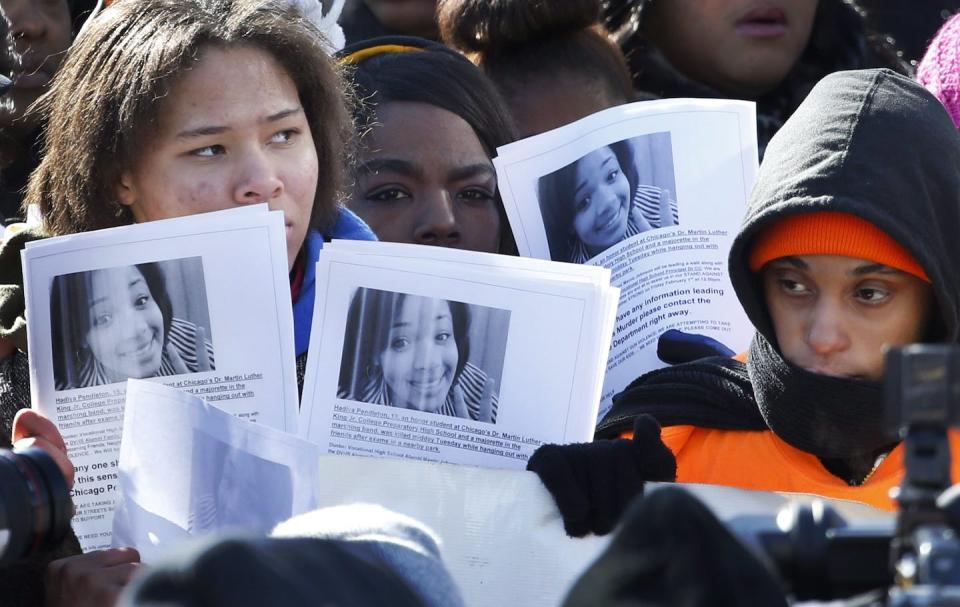Canada’s inaugural National Day Against Gun Violence promotes prevention and healing
This month, the Canadian federal government publicly announced the first National Day Against Gun Violence, to be held annually on the first Friday of June. Simultaneously, Ontario was also the first province to take action moving towards recognition of a gun violence awareness day. These declarations represent a significant step to mitigate the growing risk of gun violence.
While gun violence problems in Canada are not as acute as those in the United States, Canada ranks as third among high-income countries for rates of firearm homicides. To reduce gun violence risks, the inaugural National Day Against Gun Violence promotes prevention, intervention and healing.
Writing as a mass shooting survivor from a 2022 incident in Vaughan, Ont., I have experienced situations where communities are unequipped to provide for the necessary trauma support. The impacts of gun violence are not only in the immediate aftermath of the incident, but remain long after.
Read more: I research mass shootings, but I never believed one would happen in my own condo in Vaughan, Ont.
Gun violence survivors learn to accommodate memories of the violence in their lives. But that comes at the cost of the survivor’s psycho-social, medical and mental health.
Chicago origins
The origins of the first Friday in June as U.S. Gun Violence Awareness Day are related to a specific shooting in Chicago. Fifteen-year-old Hadiya Pendleton was shot and killed at Harsh Park in the city’s South Side, on Jan. 29, 2013. She was one of at least 412 gun violence deaths in Chicago that year.
Pendleton’s death gained symbolic national attention, as she had recently performed as a majorette in Barack Obama’s second inauguration celebration in Washington, D.C.
Given that this shooting occurred less than one mile from Obama’s Chicago home, the presidential family took a special interest in this tragedy.
That attention from the highest levels of government, along with grassroots anti-gun actions in Chicago neighbourhoods, resulted in a social movement to recognize the toll of gun violence.

Canadian impact
The National Day Against Gun Violence in Canada did not derive from a particular shooting incident. Rather, it grew out of the recognition that too many Canadians are being impacted by gun violence, and is related to a combination of factors.
Long-standing concerns of community-based organizations and citizens catalyzed action. Organizations ranging from the Danforth Families for Safe Communities to the Zero Gun Violence Movement support this nascent social movement.
Another contributing factor was the support from the Toronto Raptors. Professional sports franchises have often acted as community leaders to support communities in crisis. As a part of their community engagement portfolio, the Raptors’ organization has been working towards having a nonpolitical day of awareness for gun violence since 2022.
Media coverage of the inaugural day reflected the reality that any discussion regarding the role of guns in Canadian society is a political lightning rod. Reports on the first National Day Against Gun Violence also mentioned the unconnected issue of Conservative Party opposition to recent gun legislation promoted by the Liberal Party.
Formal recognition
On June 1, Prime Minister Justin Trudeau visited the Raptors’ practice facility to announce Canada’s first National Day Against Gun Violence. His announcement was backstopped by a formal Federal Government Proclamation.
In addition, Ontario was the first province to take concurrent action with a formal Day Against Gun Violence. The day before, MPP Chris Glover made a public announcement on the steps of the Ontario legislature, accompanied by a coalition of community members concerned with and impacted by gun violence.
Similarly, the symbolic announcement was backstopped by Ontario Bill 119, a private members bill in its first reading.

Disaster mitigation
Living with persistent gun violence results in community-level stress and trauma. The increasing number of Canadians who are being directly and indirectly impacted by gun violence is a disaster unfolding in slow motion.
The inaugural National Day Against Gun Violence in Canada can be considered as a form of disaster mitigation. In general, disaster mitigation includes a wide variety of measures taken before a disastrous event occurs. In this case, mitigation will not eliminate gun violence, but it can act to reduce it, prevent it from occurring, or help in better preparing for its aftermath.
In the coming years, Canada’s National Day Against Gun Violence will evolve and take on its own meanings. It has the potential to reduce risks associated with gun violence.
It remains as an open question as to how Canadians will treat this new day of awareness. Will it become a day of remembrance for gun violence victims? Or will it be a day where the growing contingent of gun violence survivors makes a call to action for safer communities?
Or will it just be another opportunity for political posturing by those who are either for or against Canada’s gun legislation?
This article is republished from The Conversation, an independent nonprofit news site dedicated to sharing ideas from academic experts. If you found it interesting, you could subscribe to our weekly newsletter.
It was written by: Jack L. Rozdilsky, York University, Canada.
Read more:
Jack L. Rozdilsky does not work for, consult, own shares in or receive funding from any company or organisation that would benefit from this article, and has disclosed no relevant affiliations beyond their academic appointment.


